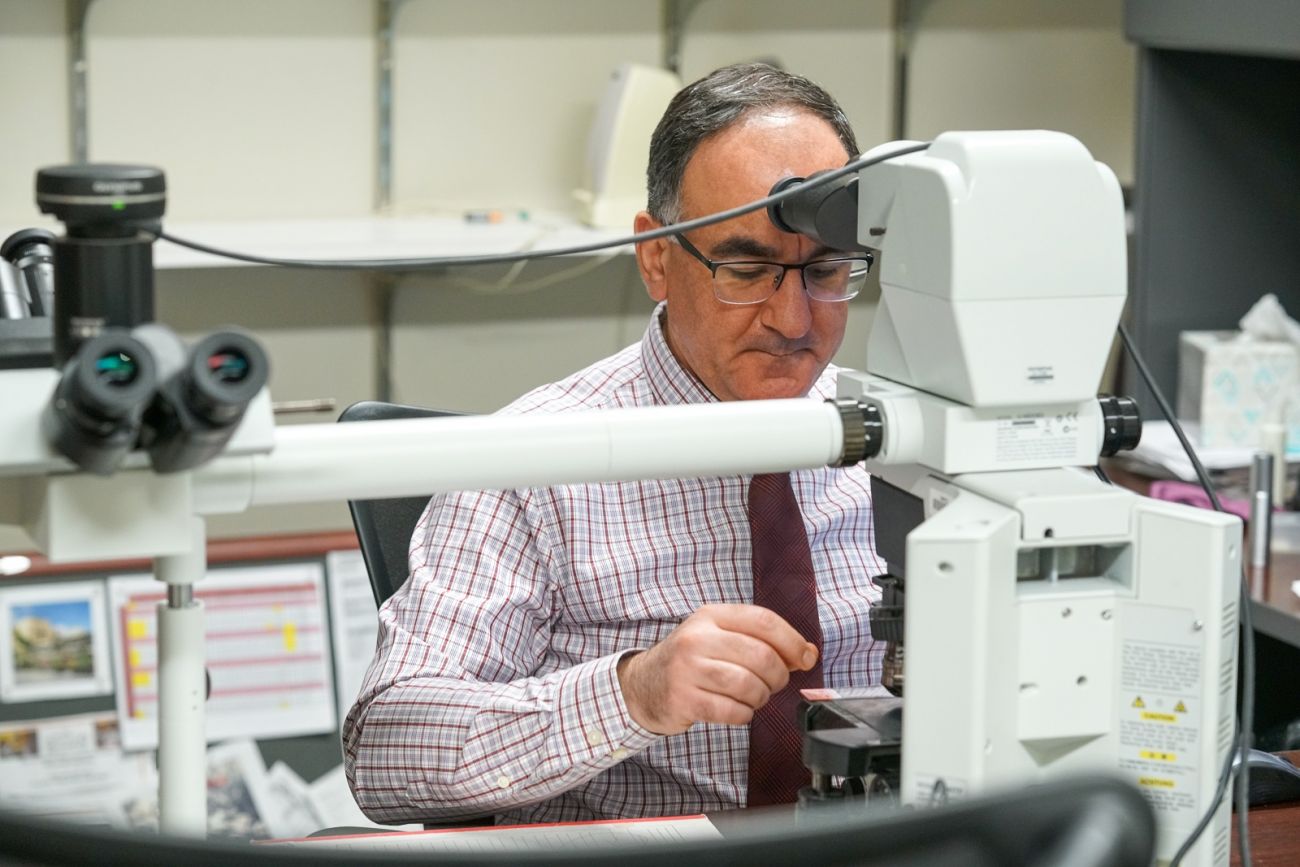Our pathologists examine your cancer cells obtained through a biopsy or surgery to pinpoint the exact type and grade of your breast cancer.
This information helps your physicians determine how aggressive your cancer is; which treatments will work best; and the likelihood that the cancer will recur after treatment. The pathologist conducts several tests on your cells, including:
- Estrogen and progesterone receptor tests. If your cancer cells have an abnormal amount of estrogen or progesterone receptors (binding sites on the cells) then specific drugs that block these hormones can be an effective part of your treatment.
- Human epidermal growth factor type 2 receptor (HER2/neu) test. This measures how many HER2/neu genes and how much HER2/neu protein is in your cancer. Drugs that directly attack HER2, usually given with other chemotherapy drugs, can be an effective part of treatment for HER2-positive cancers.
- Multi-gene tests. These tests look at several genes in the tissue sample to determine whether you are at low, intermediate or high risk for having your cancer recur. If you’re at high risk, adding chemotherapy to your treatment plan may help lower that risk. Women at low risk likely will not benefit from chemotherapy and do not need this treatment. Commonly used tests include Mammaprint® and Oncotype DX,® but these tests are not useful in all cases.
Request an appointment Get a second opinion
About triple negative breast cancer
Breast cancers that test negative for estrogen receptors, progesterone receptors, and for HER2 protein are called triple negative breast cancer. This means that treatment using hormone drugs that block estrogen and progesterone, and targeted drugs that home in on HER2, are not effective against this cancer. Learn more about triple negative breast cancer and the options Roswell Park offers for this rare and aggressive cancer type.
Your breast cancer pathology report
You may have more than one pathology report. For example, one report will be prepared after your biopsy, and another after testing tissue that was removed in surgery. Key findings that may be detailed in these reports include:
- The type of cell, such as ductal or lobular, where the cancer began
- Whether your cancer is invasive or noninvasive
- Whether your cancer tests positive or negative for:
- Estrogen or progesterone receptors
- HER2 protein or gene number
- Lymph node status, referring to whether or not cancer was found in any of your lymph nodes
- Cancer grade, characterized by a score of 1 to 3 that reflects how different the cancer cells look from normal cells. A score of 1 is low grade meaning the cells look most like normal cells and 3 is high grade with cells that appear very different from normal cells. Grade 2 is in between. In general, Grade 1 and 2 cancers are less aggressive, while Grade 3 cancers have a slightly higher chance of spreading.
- Oncotype Score. Physicians use this information to determine your cancer’s stage, and select which treatment options will be most effective for your cancer.
